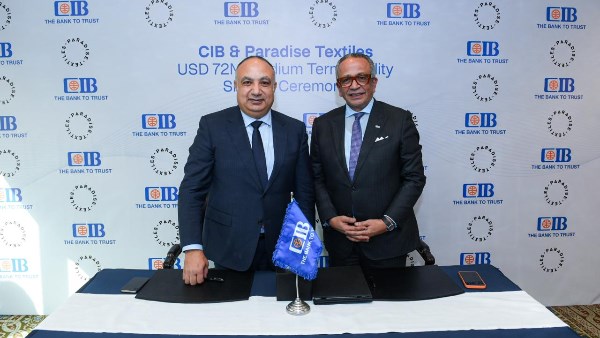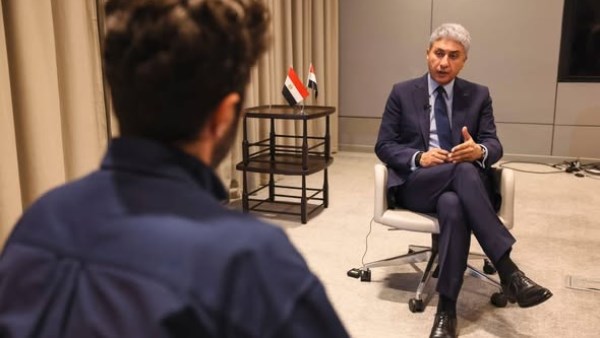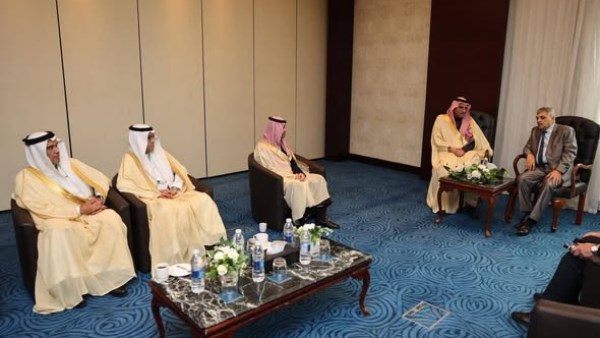
In northern Gaza, there were more battles between Hamas militants and Israeli troops
Israel’s Truce and Hostage Deal With Hamas Faces Delays

Israel and Hamas’s negotiations continued overnight، with Israeli officials signaling that a release of hostages from Gaza and pause in fighting would be delayed.
The four-day halt in military operations in Gaza and freeing of hostages were initially envisaged to begin Thursday morning. The head of Israel’s National Security Council said the releases would begin “not before Friday،” underscoring the fragility of the complex accord with Hamas، which was announced earlier this week.
Further exchange of fire
In northern Gaza، there were more battles between Hamas militants and Israeli troops on Wednesday night. Meanwhile، Israel’s northern border with Lebanon saw further exchanges of fire on Thursday، with the Hezbollah militant group unleashing a barrage of rockets.
Qatar، which along with Egypt is acting as a mediator، said Thursday the timing of the truce’s implementation would be announced “within the coming hours.” An Egyptian official said it was expected to enter into force on Friday.
US President Joe Biden spoke with key players، including Israeli Prime Minister Benjamin Netanyahu and the leaders of Qatar and Egypt. The White House emphasized the need for all parts of the deal to be executed.
Israel and Hamas agreed that the Iran-backed group would free 50 women and children held in Gaza. In turn، Israel will release 150 women and Palestinians under the age of 19 from Israeli jails. US officials said three Americans would be among the hostages leaving Gaza.
The first major lull in fighting
Netanyahu said the war will carry on until Hamas is destroyed as an organization، but the accord will still mark the first major lull in fighting since the conflict erupted just over six weeks ago.
Israeli media have reported that the cease-fire would start only after the Red Cross receives hostages from Hamas، which the US and European Union designate a terrorist group.
“Negotiations on the release of our hostages are progressing and continuing all the time،” said Tzachi Hanegbi، head of Israel’s National Security Council.
Under the deal، more aid is expected to flow into Hamas-controlled Gaza to alleviate what the United Nations and Palestinian officials say is a humanitarian disaster. A second stage could see the pause in fighting extended another day for every 10 additional hostages released.
The agreement falls short of calls from many nations for an extended cease-fire. Israel and the US have rejected such a move، saying it would allow Hamas to rearm.
“Humanitarian pause”
The deal’s outcome has high stakes for Biden، who faces pressure from many in his own party to bring an end to Israel’s offensive، launched after an Oct. 7 Hamas attack that killed 1،200 people and saw 240 taken hostage. More than 14،500 people، including 6،000 children، have since been killed in the Palestinian enclave، according to the Hamas-run health ministry.
Qatar said the “humanitarian pause” could help stop the war and lead to a “just peace process.”
Netanyahu، though، has made clear Israel won’t let up.
“We are committed to destroying Hamas، getting all of our hostages back and making sure Gaza is no longer a threat to Israel،” he said.
He’s also instructed Mossad، Israel’s foreign-intelligence agency، “to act against the leaders of Hamas wherever they are.” Defense Minister Yoav Gallant said Hamas’s leaders are “living on borrowed time” and the fight against them would “span the entire globe.”
Wider diplomatic efforts to contain the conflict continued. An Arab delegation headed by Saudi Arabia’s top diplomat، Prince Faisal bin Farhan، visited London on Wednesday، before heading to Paris for talks with French President Emmanuel Macron.
UK Foreign Secretary David Cameron visited Israel on Thursday، meeting his counterpart Eli Cohen as part of a series of planned meetings with Israeli and Palestinian officials. He visited one of the Israeli communities near Gaza in which residents were massacred by Hamas fighters in October.
Read More: Iran Top Diplomat Meets Hamas، Islamic Jihad Officials in Beirut
Events elsewhere in the region over the past 24 hours have underlined the risks of the war spilling over.
Hezbollah، also considered a terrorist group by the US، said it launched 48 Katyusha rockets at an Israeli army base near the border with Lebanon، Al-Manar TV reported. It also fired a guided missile at an Israeli tank and and attacked an infantry force.
Israel’s army said it intercepted a number of launches and struck the sites from which projectiles were fired.
Earlier، Lebanon state media said an Israeli airstrike on a house in the village of Beit Yahoun killed four people and wounded another. Hezbollah said five of its members were killed، including the son of the head of its bloc in parliament، according to Al Manar. It didn’t give details and it wasn’t clear if it was the same incident.
Shooting Drones
Elsewhere، US said Wednesday that one of its destroyer ships in the Red Sea shot down several drones launched from Yemen. The country’s Iran-backed Houthi rebels have pledged to keep targeting Israel until its ends the war.
It remains to be seen if groups such as Hezbollah and the Houthis will also adhere to a truce between Hamas and Israel.
Iran’s top envoy، Hossein Amirabdollahian، visited Lebanon where he told Hezbollah leader Hassan Nasrallah that the truce was “the result of the resistance and steadfastness of the Palestinian nation،” the Iranian foreign ministry said on Thursday. He traveled on to Qatar to continue consultations.
Jordanian Foreign Minister Ayman Safadi warned the longer Israel presses ahead with its assault on Gaza، the greater the risk of a wider conflict and terrorist attacks on Western assets.
There is a concern that “if we get to a certain point there’s no going back،” he said.





-1120252475029447.jpg)














